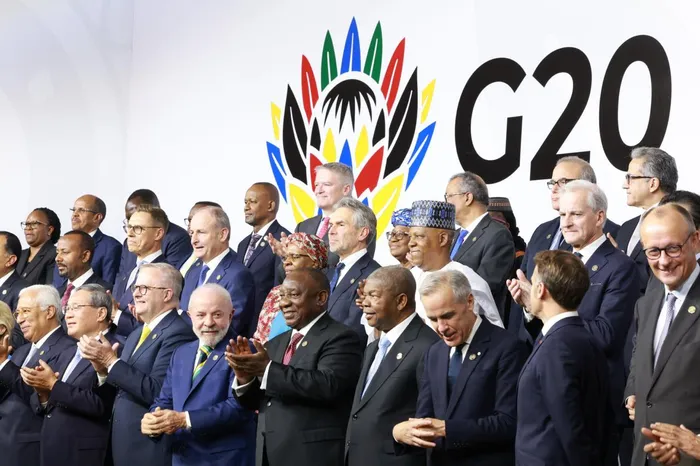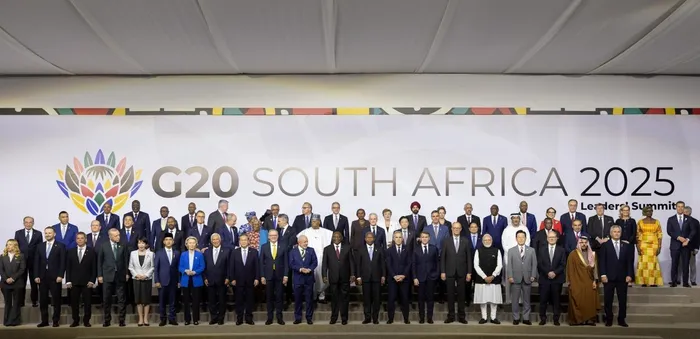Global conflicts split G20 leaders despite declaration

G20 leaders including South Africa's President Cyril Ramaphosa, Spain’s Prime Minister Pedro Sánchez and Brazil’s President Luiz Inácio Lula da Silva.
Image: Supplied/GCIS
THE divisions among G20 leaders over global conflicts shows that European leaders increasingly treat the war in Ukraine as the defining strategic crisis of the era, overshadowing even the turmoil in Gaza.
That is the view of Professor Theo Neethling, head of the Department of Political Studies and Governance at the University of the Free State, as Global South members emphasised the Israel/Palestine conflict, especially the humanitarian crisis that is unfolding in the region.
Although the issues were ultimately addressed in the declaration, Saturday's closed plenary session revealed that member countries had a particular focus when it came to conflict resolution.

The G20 summit, held in South Africa, highlighted divisions between countries amid ongoing conflicts.
Image: GCIS
This according to Neethling was because the conflict between Russia and Ukraine strikes at the very foundations of Europe’s security order.
Neethling said Russia’s invasion represents a direct challenge to the norms that have kept Europe stable since the end of the Cold War.
“Chief among them is the principle that borders cannot be redrawn by force. For states on NATO’s (North Atlantic Treaty Organisation) eastern flank, a Russian victory is not an abstract concern but a potential prelude to future aggression that could bring war closer to their own borders,’’ he said.
“While European governments recognise the humanitarian gravity of the Gaza crisis, it does not pose an existential threat to European territory or the continental balance of power. As a result, Ukraine remains the core test of Europe's strategic resolve - a conflict that, in the eyes of many leaders, will shape the continent’s security environment for decades to come,’’ he said.
Canadian Prime Minister Mark Carney reaffirmed support for Ukraine and emphasised that any peace agreement must directly involve Kyiv and include concrete security assurances. Australian Prime Minister Anthony Albanese also expressed support for Ukraine against Russia's "illegal and immoral invasion" and said his country is also open to sending peacekeeping troops to Ukraine, depending on international coordination and the situation on the ground.
French President Emmanuel Macron, along with German Chancellor Friedrich Merz and UK Prime Minister Keir Starmer also pledged their support for Ukraine.
Countries such as South Africa, on the other hand, used the Summit held in Johannesburg to call for more aid to Gaza and a just resolution, reflecting the priorities of the Global South.
Turkish President Recep Tayyip Erdogan strongly condemned Israel’s actions in Gaza as ‘’genocide’’ and held Prime Minister Benjamin Netanyahu personally responsible.
He affirmed Türkiye's unwavering support for the Palestinian cause and called for immediate international action. He also stressed the urgency of a permanent ceasefire and the immediate commencement of reconstruction and humanitarian assistance in Gaza.
Despite the divisions, the G20 leaders issued a joint declaration that included calls for peace in both the Middle East and Ukraine, the Occupied Palestinian Territory, as well as other areas such as Sudan and the Democratic Republic of Congo.
Both sides also agreed on the importance of multilateralism and international law as a means to solve global issues.
Cape Times